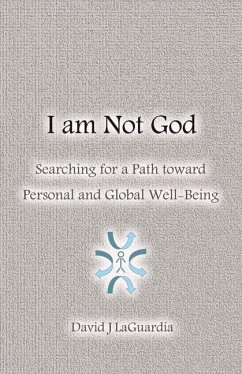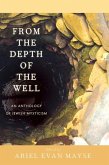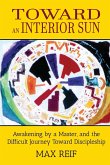This book is an invitation to examine the orientation of our lives and consider whether our direction promotes well-being for our world and ourselves. Examinations of various religions and wisdom traditions, some of which believe in gods and others which don't promote faith in gods, indicate there is "common ground." Regardless of people's faith, there is a potential for widespread agreement on the premise that none of us is god. Everyone can observe the personal and global harm caused by selfishness and recognize the damage done by an unwavering need to "get our own way." As we become more aware of our world, the prevalence of hurting invites us to reflect on whether we contribute to that hurting or promote well-being. A major obstacle to becoming more aware of our world is the assumption of our rightness. This book will examine how religions and ideologies can be placed at the service of our preferences or can lead us to constantly discern how to live rightly. I will look to my own Western, Christian tradition as a case study in the human tendency to subject religion to our preferences and consider how this tendency can lead us to ignore or even cause the suffering of marginalized peoples in our global community. Turning from social to personal, the book will invite the reader to strive for greater self-awareness. Recognizing that we are not god demands that we struggle to see beyond our limited perspective and battle to dis-cover our biases. As we will see, our way of relating to other people can reflect the objectifying tendencies of ego; we will also explore how seeing and valuing other people can be a path toward greater personal and social well-being. This book is built on a belief that we can choose what we become as individuals and as a global community. Our religions and wisdom traditions challenge us to choose to be about something beyond our personal interests; this choice involves a degree of personal struggle. Living our values is at times demanding, but when we let go and trust a path, we operate as though we are not the center of the universe. Perhaps we could all agree that the necessary direction for our world is one that leads us to a more expansive sense of community, rather than an alienating one that leads us to a world divided between us and them.
Hinweis: Dieser Artikel kann nur an eine deutsche Lieferadresse ausgeliefert werden.
Hinweis: Dieser Artikel kann nur an eine deutsche Lieferadresse ausgeliefert werden.








